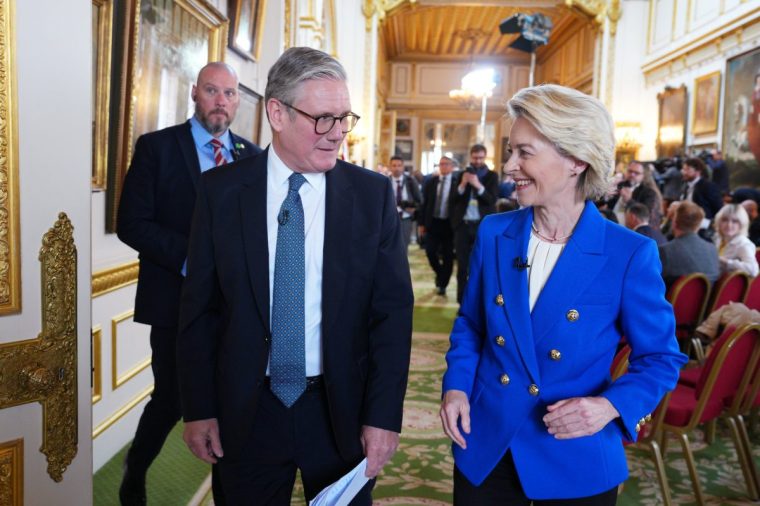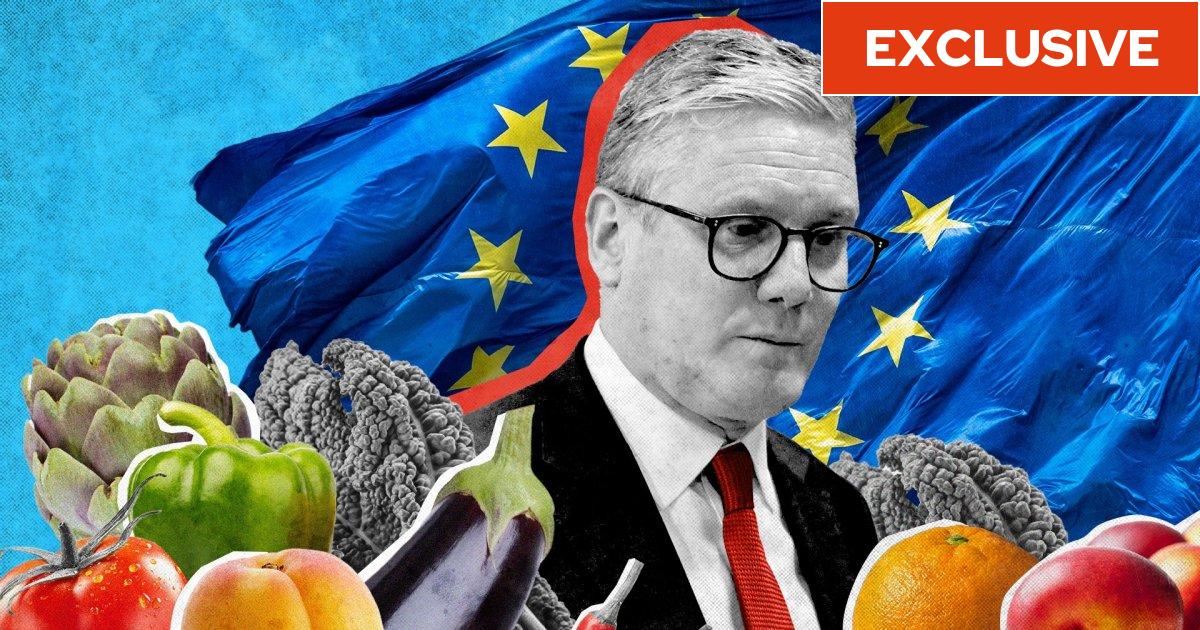Ministers claim removing trade barriers will result in lower prices and more choice on supermarket shelves
Planned border checks on fruit and vegetables being imported from the EU are being scrapped by the Government following Sir Keir Starmer’s Brexit reset deal, The i Paper can reveal.
Controls were due to come into force on 1 July following multiple delays amid warnings they could add to inflation, damage the food supply and put companies out of business because Britain imports more than half its fruit and veg, nearly 80 per cent of it from the EU.
But biosecurity minister Baroness Hayman said the checks would now be scrapped after the Prime Minister struck an in-principle deal on agri-food trade known as an SPS (sanitary and phytosanitary) agreement with the EU in May, in a move that will “make food cheaper”.
Although both sides still need to negotiate the final deal, the Government is moving to ditch the import checks on so-called “medium-risk” fruit and veg such as tomatoes, grapes, plums, cherries, peaches, peppers and more.
It follows industry warnings that the measures would have added £200m to the fruit and veg industry’s annual costs, which firms would have to pass on to the consumer through higher prices.
 Sir Keir Starmer is ‘resetting’ the UK’s relationship with Brussels (Photo: Carl Court/Getty)
Sir Keir Starmer is ‘resetting’ the UK’s relationship with Brussels (Photo: Carl Court/Getty)
Hayman said: “This Government’s EU deal will make food cheaper, slash bureaucracy and remove cumbersome border controls for businesses.
“A strengthened, forward-looking partnership with the European Union will deliver for working people as part of our Plan for Change.”
SPS checks on several types of EU food imports, including meat, fish and dairy, were introduced from 30 April 2024, following years of delay by the Conservatives, and despite an admission by the former government that the controls would add 0.2 per cent to food price inflation over three years.
But there were multiple delays in applying the post-Brexit red tape, required after the UK left the EU single market and customs union, to fruit and vegetables, with Labour latterly pushing back an expected October start date to July this year.
Now the checks will never be introduced, with the Government to lift the ongoing controls on meat, fish and dairy at a later date on conclusion of the SPS agreement.
The Prime Minister’s deal is ultimately expected to eliminate all red tape on trade in food and drink, except for live animal exports, which British officials demanded amid concerns over foot and mouth disease in Europe.
It means trade in dairy, fish, eggs, potatoes, and red meat will enjoy frictionless trade, while the UK will once again be able to export produce, such as sausages, seed potatoes and some varieties of shellfish that had been banned by the EU under the previous trading terms.
The agreement has, however, been criticised because it was achieved after the UK agreed to give the EU access to UK fishing waters for another 12 years on existing terms in return.
Starmer also came under fire for agreeing to align with Brussels rules on agri-food trade while submitting to oversight from the European Court of Justice.
Despite the criticism, ministers have insisted the deal will lead to lower prices and more choice on supermarket shelves. Big supermarket chains, including Asda and Lidl, have welcomed the agreement.
There may yet be some sticking points on striking a final agreement, with UK officials likely to refuse any EU demands to align with Brussels rules when it comes to the UK’s fast-growing gene editing sector, which is already producing drought and disease-resistant gene-edited crops.
